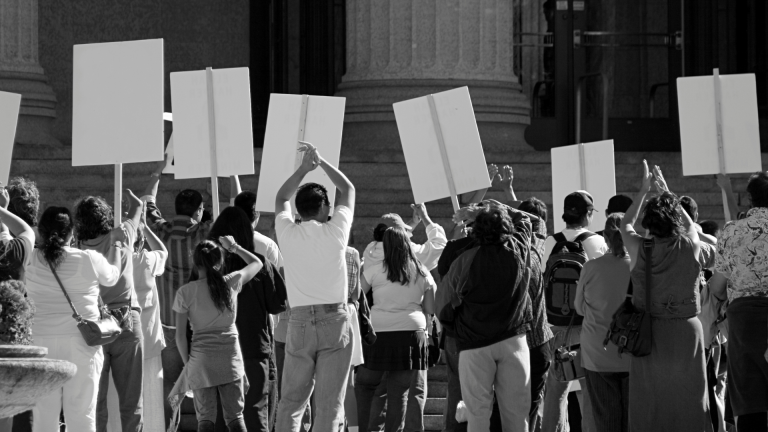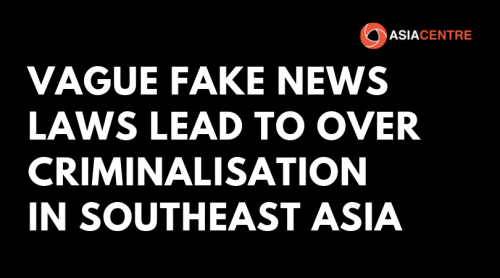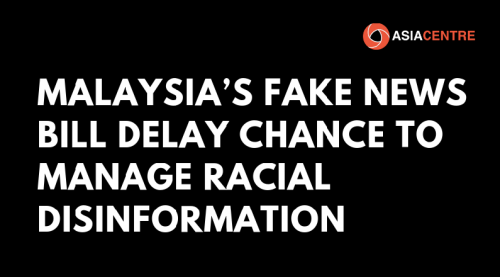
What we saw during the COVID-19 pandemic was the previous administration abusing the Emergency Decree to suppress the youth movement. This resulted in arrests and charges of many protestors – infringing the freedom of assembly enshrined in the constitution and international human rights laws. In preventing future abuse of power, the Pheu Thai Party (PTP), which leads the coalition government, should exercise leadership and consider the latest amendment to the Emergency Decree put forward by the opposition.
In March 2020, citing the public health emergency, the very beginning of the pandemic, the government declared a state of emergency by virtue of the Executive Decree on Public Administration in Emergency Situation (2005). The Decree was invoked to limit public gatherings and minimise social contact and physical activities in light of the pandemic.
Although the lethality of the pandemic was real and warranted temporary restriction of rights per the advice of public health officials, the government has taken advantage of the situation to extend the Emergency Decree for 29 times lasting two years and a half. The actions allegedly were to deter youth-led nationwide protests which occurred during 2020 to 2021.
Prompted by the Constitutional Court’s verdict to dissolve the Future Forward Party (FFP), the youth movement took to the streets and demanded change of government, new constitutions and, the most drastic call, a reform on monarchy.
The government perceived the movement and the demands thereof as an existential threat and refused to acquiesce nor negotiate. Instead, it launched massive judicial harassment charging protesters with the combination of Article 112, Article 116 and Emergency Decree. This was complemented by police brutality cracking down on protestors. When the state of emergency was finally lifted, 1,467 people were charged for violating the Emergency Decree.
There are many considerations as to why the use of the emergency decree was unjustifiable. For one, there exists a legal framework to manage public health emergencies such as the COVID-19 pandemic—the Communicable Disease Act (2015). Yet, the law was, by and large, sidelined. This was attributed to the securitisation of COVID-19 responses, where the Task Force on pandemic control was led and mainly staffed by security personnels rather than public health officials.
Moreover, the enforcement of this ban obstructed individuals from acquiring COVID-19 preventive measures and thus put people with essential works at greater risk of getting infected. After the imposition of a state of emergency, quotas of sanitary masks were readjusted, moving them away from public health frontliners—who were often the first to be in close contact with patients—to security personnels.
These reasons pointed out that pandemic control was politicised at the expense of freedom of peaceful assembly and safety of essential workers.
To better manage the exercise of freedom of peaceful assembly and public safety in the future, two things should be on the priority of the PTP-led coalition government. It must first grant amnesty to those charged under the Emergency Decree. These charges were politically motivated and unjustifiable by international human rights standards.
Second, the government should consider the latest amendment to the Emergency Decree submitted by the Move Forward Party (MFP). The latest draft would institutionalise a check-and-balance system adding in parliamentary and judicial oversight to the Decree. It will also provide a time-and-purpose specific mandate to the executive; so that it has clear operational guidelines to use during public emergencies.
Per Thailand’s obligations under the ICCPR to safeguard freedom of peaceful assembly, it is the time to set aside parties’ differences and prioritise bi-partisanship. Progress on the draft amendment to the Emergency Decree will signify PTP’s leadership and a boon to Thailand’s UNHRC seat bid in 2024.


